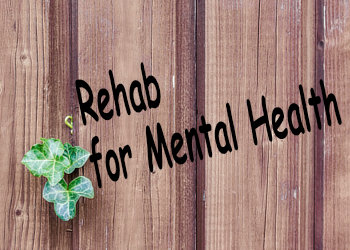Rehab for Mental Health: Liability Claims
Las Vegas, Nevada
Residential treatment claims

If you suffered an injury while being in rehab for mental health in Las Vegas or Nevada, call us at 702-432-1000 to discuss your case.
We don't charge for consultations.
What is rehab for mental health?
Inpatient rehab for mental health, also known as residential treatment, is a type of intensive mental health care where individuals receive treatment and support for various mental health disorders in a live-in facility. These facilities provide a structured and supportive environment for individuals who struggle with depression, anxiety, bipolar disorder, PTSD, or substance abuse disorders.
Key features of inpatient rehab for mental health in Nevada
1. 24/7 care and support: Inpatient rehab facilities offer round-the-clock care and supervision by trained mental health professionals, including therapists, counselors, and nurses. This constant support ensures immediate assistance in case of crises.
2. Structured therapy programs: Patients participate in various forms of therapy, including individual therapy, group therapy, and sometimes family therapy. These sessions help individuals address the root causes of their mental health issues, develop coping skills, and learn strategies to manage their symptoms effectively.
3. Medication management: Psychiatrists and medical professionals monitor medications, adjusting dosages or changing prescriptions as needed to ensure the most effective treatment.
4. Holistic approach: Inpatient rehab often incorporates holistic therapies such as yoga, art therapy, meditation, and mindfulness exercises to promote overall well-being and relaxation.
These programs typically vary in duration, ranging from a few weeks to a year.
Is inpatient rehab for mental health effective?
For many individuals with severe mental health issues, inpatient rehab can be highly effective. It provides a safe and structured environment away from the stressors of their daily lives.
However, it's important to note that inpatient rehab might not be effective for everyone. Other treatment programs, such as outpatient therapy or day programs, can be equally effective for individuals with less severe mental health concerns.
Do people get injured while in rehab for mental health?
Sometimes, yes.
Some common causes of injuries in mental health rehab facilities could include:
• Accidental falls: Patients, especially those struggling with issues like depression or anxiety, might be more prone to slip-and-fall accidents within the facility.
• Aggressive behavior: In some cases, patients might display aggressive behavior towards themselves or others, leading to injuries.
• Medical emergencies: Some patients might have underlying medical conditions that require immediate attention, leading to medical emergencies and possible injuries during medical interventions.
• Self-harm: Individuals with severe mental health issues might engage in self-harming behaviors, leading to injuries or even suicide.
Mental health professionals in these facilities should monitor patients 24/7 to prevent self-harm. Sometimes, they fail to eliminate accidents or suicide attempts.
Can I sue rehab for mental health for my injuries?
If you believe the rehab facility was negligent, did not provide appropriate care, or follow proper procedures, you might have grounds for a legal claim.
In Nevada, the negligent party (or their liability insurance) is financially responsible for all damages, including all medical bills and other damages.
When considering legal action, some factors that may be relevant include:
Evidence of negligence: To pursue a lawsuit, you typically need evidence demonstrating that the rehab facility was negligent and failed to provide a standard level of care. It could include witness statements, medical records, or other documentation. If you can, take photographs of any injuries or unsafe conditions at the facility.
Terms of agreement: Review any agreements or consent forms you or your loved one signed with the facility. These documents might contain clauses related to liability and legal recourse.
Causation: Establishing a direct link between the facility's actions (or lack of that) and the injuries or suicide is essential for a successful legal claim.
What is the average settlement?
It depends. Often, mental health rehab facilities don't publish their settlement amounts for injuries or suicide cases. Sometimes, a settlement could be in millions of dollars.
The factors that can affect the settlement amount may include:
• the severity of the injury,
• the facts surrounding the accident,
• the strength of the evidence, and
• the expertise of the legal representation involved.
How long does it take to get a settlement in Nevada?
Each case is different. In Nevada, an injury lawsuit may take a few months or a few years to settle. It depends on the circumstances of the accidents and the willingness of the parties to negotiate.
When multiple liable parties are involved, it may take longer to determine who is responsible and to what degree.
What are the issues when suing a rehab for mental health?
Suing a mental health rehab facility can be challenging.
Here is the shortlist:
a. Negligence: Proving negligence can be difficult. The rehab for mental health lawsuits often involves sensitive and confidential information. Obtaining concrete evidence to substantiate the claims can be a challenge.
b. Privacy: Navigating legal processes while respecting patient privacy laws can be complicated.
c. Signed Informed Consent: The rehabilitation facility may argue that the patient signed the Informed Consent form and has been informed about the treatment, methods, potential risks, and alternatives and voluntarily agreed to it.
d. Complex regulations: Mental health facilities are subject to various regulations and standards of care. Understanding these regulations and proving that the facility violated them requires expertise in healthcare law.
e. Professional expertise: Lawsuits against rehab for mental health often require expert testimony from mental health professionals. Finding and presenting credible experts can be difficult.
f. Emotional challenges: Individuals pursuing legal action may be dealing with significant emotional distress and trauma. Managing these emotions while navigating a legal case can be overwhelming.
g. Possible counterarguments: Mental health facilities may have strong legal teams to defend against claims. They could present counterarguments, making it essential for the plaintiff's legal team to anticipate and address these effectively.
h. Public perception: There might be a stigma associated with mental health issues, potentially impacting public perception and biases that could influence the case.
We can help
If you are considering legal action against rehab for mental health, call us at 702-432-1000.
Consultations are free.
Since 2010, our office has handled thousands of liability claims, helping victims to get their full and fair compensation.
We take all liability claims on a contingency basis, which means we don't ask for fees unless we recover damages for our clients.
We represent clients in Las Vegas and Nevada.

